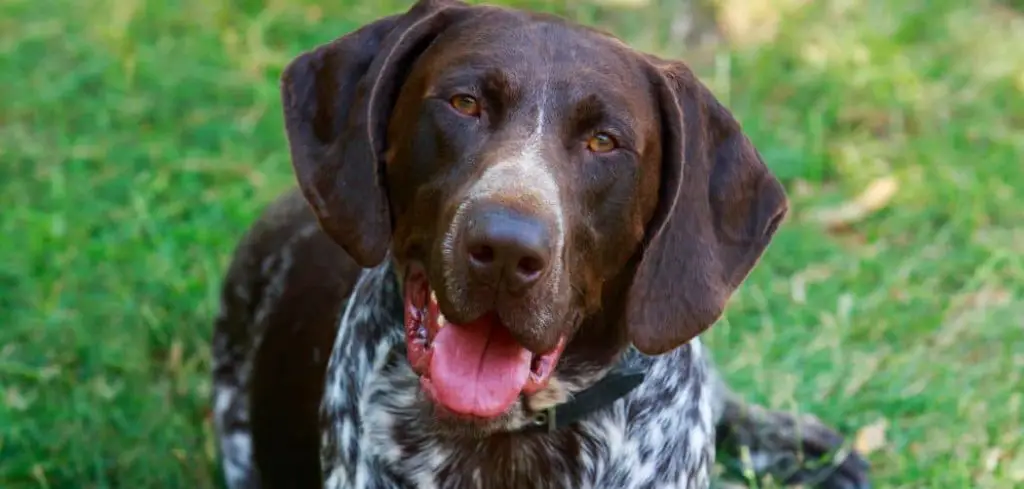When an old dog is not eating but drinking water, it can be concerning for dog owners. Drinking without eating often signals that your dog is still trying to stay hydrated while something is affecting appetite, digestion, or overall health.
We outline the common reasons why an old dog may not be eating but drinking water, what you can do at home, and when to seek veterinary help.
Old Dog Not Eating but Drinking Water — Why It Happens
An old dog not eating but drinking water can be due to nausea, oral pain, gastrointestinal discomfort, or a systemic illness that reduces appetite but does not prevent drinking. Common causes include kidney disease, liver problems, dental pain, infections, or pancreatitis. Drinking water may help compensate for early dehydration, but ongoing appetite loss requires evaluation.

Old Dog Not Eating but Drinking Water: Common Causes
Dental Disease
Dental pain from gum disease, tooth decay, or oral infections can make chewing uncomfortable.
Dogs may continue drinking because swallowing liquids is less painful than eating solid food. Signs include bad breath, drooling, pawing at the mouth, and avoiding dry kibble.
Dental issues in older dogs can reduce nutrition and quality of life, making veterinary care important.
Read more: Old Dog Not Eating or Drinking (Hydration and appetite concerns)
Kidney Disease
Kidney dysfunction often causes increased thirst (polydipsia) but reduces appetite.
Dogs may drink more to compensate for toxin buildup while avoiding food due to nausea or stomach upset. Other signs include frequent urination, lethargy, vomiting, or weight loss.
Early detection allows interventions like diet adjustment, hydration support, and medications to slow disease progression.
Liver Disease
Liver problems can reduce appetite and cause nausea while dogs continue drinking.
Signs may include yellowing of gums or eyes, lethargy, and weight loss. Drinking may help flush toxins, but food refusal signals that the liver is under stress.
Veterinary evaluation is essential to identify the underlying cause and implement supportive care.
Gastrointestinal Upset
Gastritis, food intolerance, or stomach irritation may cause appetite loss while leaving thirst intact.
Dogs may vomit or appear bloated, yet still drink to stay hydrated. Chronic irritation can worsen without proper treatment, leading to malnutrition.
Bland diets, hydration, and monitoring can help at home, but persistent issues require a vet check.
Pancreatitis
Pancreatic inflammation causes nausea, pain, and appetite loss in older dogs.
Dogs may avoid food but continue drinking small amounts. Additional signs include vomiting, abdominal tenderness, or lethargy.
Prompt veterinary care is essential to prevent dehydration and systemic complications.
Stress or Environmental Changes
Changes in routine, new pets, or moving can affect older dogs’ desire to eat.
While water intake continues, stress can suppress appetite. Signs include hiding, pacing, or increased sleep.
Consistency, reassurance, and a calm feeding environment may help, but ongoing refusal to eat requires medical assessment.
What to Do If Your Old Dog Is Not Eating but Drinking Water
Offer small, bland meals such as boiled chicken and rice or soft canned food to encourage eating.
Ensure water is always available, and consider low-sodium broth or ice cubes if hydration is a concern.
Monitor appetite, water intake, and energy levels closely. Documenting changes helps your vet identify causes quickly.
Avoid forcing food, as stress or pain may worsen refusal. Maintain a calm environment and provide comfort.
When to Call or Visit Your Vet
Consult your veterinarian if your dog:
Refuses food for more than 24 hours
Shows vomiting, diarrhea, or weight loss
Appears lethargic, weak, or disoriented
Has dental pain, bad breath, or drooling
Veterinary assessment is essential to rule out organ disease, pancreatitis, dental problems, or other underlying conditions. Early intervention can prevent dehydration, malnutrition, and serious complications.
Read more: Old Dog Not Eating (Causes and what to do)
Key Takeaway
When an old dog is not eating but drinking water, it signals potential dental, digestive, or systemic issues.
At home, provide small, palatable meals, ensure hydration, and monitor for additional symptoms. However, persistent appetite loss requires prompt veterinary evaluation to identify the cause and prevent complications, keeping your senior dog healthy and comfortable.
